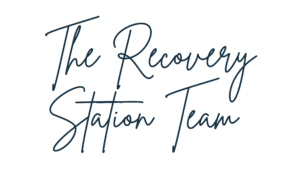It’s no coincidence that National Carers Week falls within Mental Health Month – too often, a carer’s wellbeing is overlooked.
With 2.65 million people caring for family members and friends across Australia, it’s essential to highlight the immense challenges carers face and the crucial support they provide.

Carers can experience significant physical, financial, and emotional demands in their role, yet their support is invaluable to their loved one’s health and wellbeing.
While caring can be rewarding, it often leads to burnout and overwhelm, especially when carers struggle to access the support they need.
Spotting the Signs of Carer Strain: A Real-Life Example
During a client’s Occupational Therapy Functional Capacity Assessment (let’s call her Jane*), it became apparent that Jane’s mother and primary carer, Sharon*, was experiencing severe carer stress.
Sharon showed high levels of exhaustion from managing Jane’s physical and psychological needs. Along with making constant decisions to ensure Jane’s safety, Sharon was also dealing with high anxiety, financial stress, housing instability, and poor sleep.
Sharon’s assessment revealed a Caregiver Strain Index (CSI) score of 9. To put this in context, scores above 7 indicate significant levels of carer strain and signal a need for increased formal supports to protect both the carer and the person being cared for.
Advocating for Additional Support
The Occupational Therapist included the need for additional supports in Jane’s report to ensure both Jane and Sharon received help. This assessment and other evidence advocated for increased funded carer support in Jane’s NDIS plan, aiming to protect the valuable caregiver relationship between Sharon and Jane.
As a result, Jane gained access to formal care services, including day programs and community activities. This gave Sharon much-needed respite and reduced her overall stress levels. Meanwhile, Jane thrived, developing her social skills and enjoying new activities.
The OT also connected her with community resources and organisations like Carer Gateway to further support Sharon. These networks provided Sharon with the guidance, services, and support she needed to continue her crucial role as a carer without burning out.
A Positive Outcome
Three years later, Sharon’s CSI score dropped to 6, indicating a significant reduction in carer strain. Jane continued to benefit from the day programs, and Sharon felt their relationship had transformed into a more typical parent-adult-child dynamic, thanks to the additional support in place.
A Message to All Carers: You Matter!
To all the carers out there—your role is vital, and we honour the incredible impact you make every single day. If you are feeling overwhelmed or burnt out, please remember to ask for help. It’s okay to prioritise your own health and wellbeing.
If you are referring a client to Recovery Station and think that their carer may be experiencing carer fatigue, please let us know. We may be able to advocate for and support the carer while also supporting our client. For more information, call us on 1300 588 851.
Until next time,

